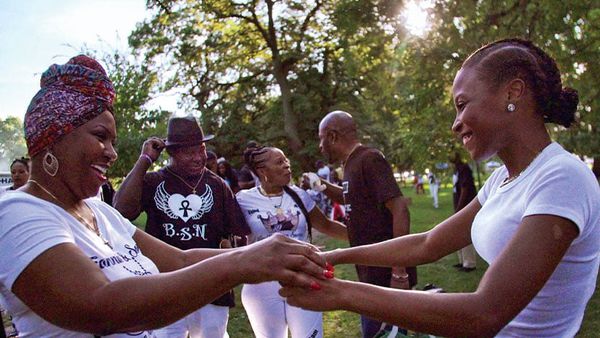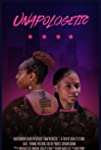Eye For Film >> Movies >> Unapologetic (2020) Film Review
Unapologetic
Reviewed by: Nikola Jovic

You might find yourself asking “Wait, what year is this?" as the fight for justice in the face of racial inequality unfolds in Ashley O'Shay’s documentary first feature. That’s because, since the events of the tragic police shooting of Rekia Boyd in 2012 and our protagonists’ struggle to make authorities face the consequences of it, these issues have become even more prescient and urgent in our society.
Unapologetic follows two young activists with a heart of gold, in their struggle to make Chicago city officials accountable for letting the brutal killings of Black people go unpunished. Ambrell Gambrell is a spontaneous self-proclaimed raptivist (rap-activist) with a charming smile, and Janaé Bonsu is a PhD candidate, doing her thesis in social work, as well as being a prominent member of the Black Youth Project 100. Knowing that all of this happened before the 2020 Black Lives Matter protests, one can't help but feel that until social justice spills over from the small screens into the real world, wheels of change are bound to remain slow-turning.

This is best exemplified in the very opening scene of Black activists storming into the restaurant, chanting the names of their brothers and sisters killed by local police officers. Guests are lowering their heads, shrugging, trying to ignore them, but the host of the restaurant expresses what can be seen in the side-eye and eye-roll looks of uncomfortable guests: “We all have a TV. We all watch the news… What is this helping?” Almost as if implying: “Why are you crossing the distance into my personal world? This is rather awkward and upsetting, go back into the TV set.” To which protestors respond with more chants, almost as if implying, rhetorically, the famous line: “Are you not entertained?”
What we have often heard from conservative pundits in the past year, in the height of the George Floyd protests, is that protestors are either aggressive (destroying public property, etc.), or that they’re privileged college kids. By choosing to contrast the lives of the two protagonists, O’Shay manages to easily cut through this rhetoric. While Ambrell is having trouble composing her request for a grant, having been all too used to protesting with a freestyle way of delivery, Janaé is in need of strength to turn her theory into practice. By contrasting them, the director and her screenwriting partner Rubin Daniels Jr, manage to structure a story in an interesting way as they juxtapose similar events in the lives of the protagonists. Their stories complement each other, driving home the message that social justice is not a performative media statement, but a matter of courage in the face of existential threat. By choosing to focus mostly on two main protagonists, O'Shay manages to make the broad social issue intimate while also keeping some of that broadness in approach, which is also the source of some of the film’s drawbacks.
What drags the movie down just a bit is, that by choosing to focus on the two protagonists, priorities are always shifting, leaving us either wanting those points and criticisms about the broader movement to be expanded (like, for example, gender inequality within the BLM movement), or leaving us wanting more personal deep dives when the subject starts becoming too broad. That, coupled with some flimsy effects and transitions that could have used some more polish in post-production, slightly put a dent in what is otherwise an urgent story, in need of retelling.
Reviewed on: 07 Nov 2021















